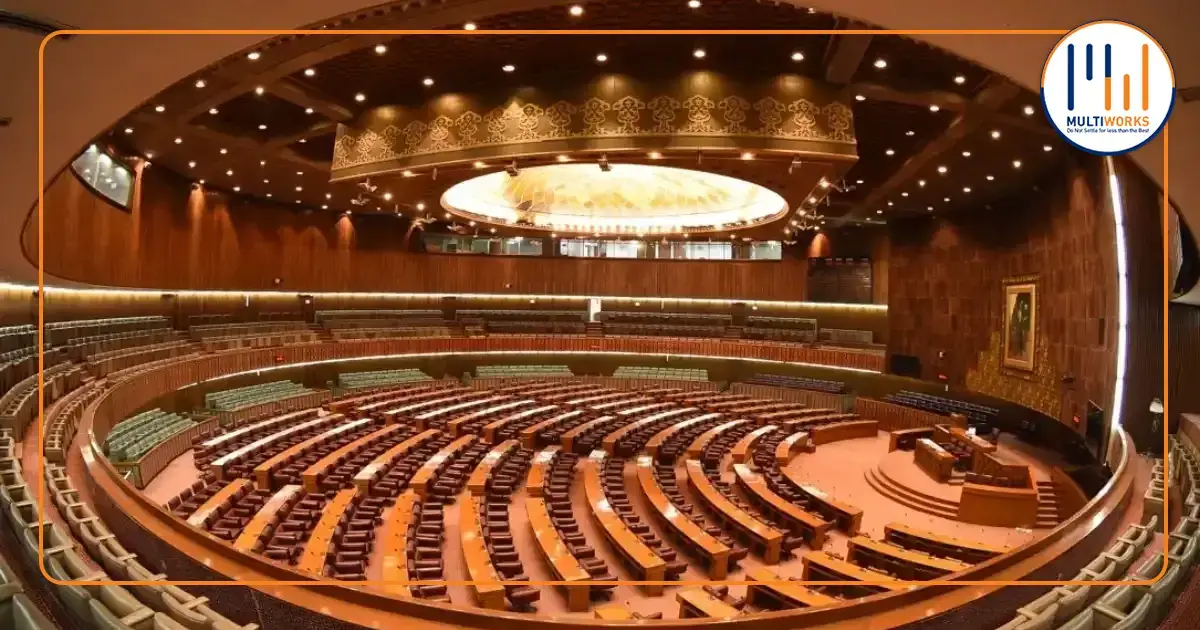Islamabad, Pakistan – In a landmark development, the Senate Standing Committee on IT and Telecom has approved the Digital Nation Pakistan Bill 2025. The bill, which aims to spearhead the country’s digital transformation, received four votes in favor and two against during Monday’s session. However, planned adjustments to Section 7 failed to pass after Senator Nadeem Bhutto retracted his vote, mentioning concerns.
Read More: Pakistan, Azerbaijan Agree to Implement PTA, Strengthening Bilateral Ties
Key Highlights of the Bill
1. Formation of a National Digital Commission
The bill directives the creation of a 17-member National Digital Commission, led by the Prime Minister of Pakistan. This commission will include chief ministers of all provinces, federal ministers, and heads of essential institutions like:
2. National Digital Master Plan
Furthermore, the commission’s primary role will be to design and execute a National Digital Master Plan. This initiative aims to streamline digital transformation by raising inter-departmental coordination and addressing challenges in the country’s digital ecosystem.
3. Pakistan Digital Authority
To implement the master plan, the bill proposes the establishment of a Pakistan Digital Authority. Especially, the authority’s chairman and members will serve a four-year term, appointed directly by the Prime Minister.
4. Strategic Oversight Committee
Additionally, a Strategic Oversight Committee, chaired by the relevant federal minister, will monitor the Pakistan Digital Authority’s performance. This ensures accountability and progress in achieving the outlined goals.
Read More: Margalla Enclave: A Joint Project Between CDA and DHA

Implications for Pakistan’s Digital Future
The Digital Nation Pakistan Bill 2025 is expected to play a transformative role in standing Pakistan as a globally competitive digital economy. Most importantly, the key focus areas include enhancing digital infrastructure, improving governance efficiency, and adopting innovation across sectors like e-commerce, fintech, and education.
By creating a organized framework for digital governance, the bill seeks to overcome existing challenges, including limited digital access, organizational delays, and cybersecurity threats. Moreover, the bill’s importance on collaboration among stakeholders highlights the government’s commitment to a joined approach.
Furthermore, the rule underscores the importance of establishing a digital ecosystem that aligns with international standards. This will not only enhance Pakistan’s global standing but also attract foreign investment into the technology sector.
What’s Next?
Following the bill’s passage, the National Digital Commission is expected to organize and outline actionable steps for the master plan’s rollout. In the coming months, experts highlight the importance of swift implementation and public-private collaboration to ensure the bill’s success. Consequently, the government will need to engage stakeholders actively to address any gaps during the execution phase.
Additionally, it will be crucial to monitor the progress of the planned initiatives closely. Regular calculations will ensure that the digital transformation goals are met efficiently and effectively.
Conclusion
In conclusion, the passage of the Digital Nation Pakistan Bill 2025 marks a significant step towards achieving a digitally authorized Pakistan. With healthy frameworks and dedicated authorities, this initiative holds the potential to drive sustainable economic growth and improve citizen’s quality of life. Consequently, this legislation is a major milestone in the journey towards a fully digital Pakistan.
Moreover, stakeholders are bright about the bill’s impact on various sectors, including education, healthcare, and commerce. Ultimately, this initiative will cover the way for a more connected and digitally proficient society.
Stay tuned to Multiworks for updates.




